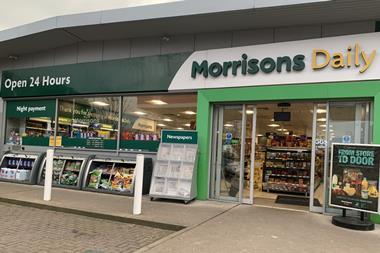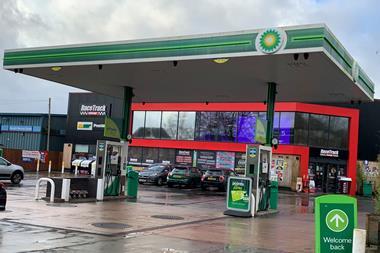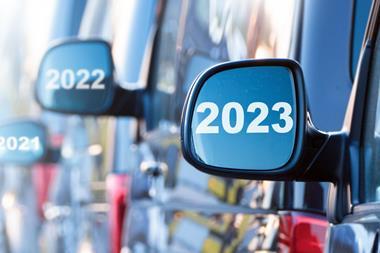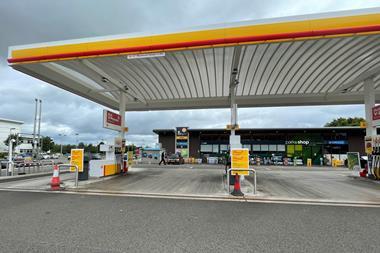When a Parliamentary Committee of MPs announced last year that it was launching an inquiry into the hand car wash sector it appeared that a long campaign was finally paying off. For years the PRA and its sister organisation, the Car Wash Association (CWA), have been highlighting the explosion in the numbers of rogue operators, and calling for action by the authorities. By paying no taxes, using slave labour and ignoring pollution regulations, these operators were able to undercut legitimate car washes, driving many of them out of the sector.
It was hoped that with the inquiry shining a light on the extent of the problem, the authorities that were ignoring it, such as HMRC and the Environment Agency, would be forced to clampdown on the offenders. In evidence to the inquiry, CWA chairman Brian Madderson said estimates of tax evasion by the hand car wash sector varied from £500m to £1bn a year. HMRC disputed his figures, but did not take up his challenge to fund a proper study into the size of the problem.
When looking into pay rates the inquiry was told there had been just 14 minimum wage prosecutions across all sectors since the Minimum Wage Act was passed in 1998. And it was told many of the supermarket car parks where hand car washes operate did not have the drainage required to prevent run-off entering local waterways.
Last November the Environmental Audit Committee delivered its findings, criticising the authorities for failing to enforce the law on combatting labour exploitation and calling for hand car washes to be licensed. It also highlighted the pollution issues. In its response the government accepted the pollution findings, saying the Environment Agency would write to supermarkets to remind them of their responsibilities for ensuring pollution prevention measures are in place, and agreeing to update pollution prevention guidance.
But on the issues of labour exploitation and tax evasion it was defiant.
It said: "HMRC intelligence suggests that some operators in the hand car wash sector are failing in their tax obligations. HMRC investigates hand car washes across the UK to tackle these failings and prevent further tax losses to the Exchequer."
It rejected the call for licensing and said that instead it would monitor the pilot of the voluntary Responsible Car Wash Scheme.
Madderson was scathing in his response, saying: "The CWA is disappointed to see that the government has produced so little evidence to back up its claims that HMRC is enforcing tax compliance at hand car washes.
"The government is claiming that ’HMRC investigates hand car washes across the UK to tackle these failings and prevent further tax losses to the Exchequer’. But this does not reflect the reality reported to us by the police and automatic car wash operators.
"The police estimate is that there are up to 20,000 rogue hand car washes operating in the UK. If HMRC had caught up with even a fraction of these, it would be collecting over a billion pounds in taxes. Yet the government has produced no evidence to show that it is collecting much tax at all from rogue hand car washes.
"We are being given words of reassurance, but what we need is firm action against the modern slave owners who evade taxes and exploit vulnerable workers.
"What action is the government taking to deal with the problems of environmental damage from mishandling trade effluent caused by the 20,000 hand car washes in the UK that operate illegally? More needs to be done to tackle illegal hand car washes and bring an end to modern slavery."
disappointed
The chair of the Environmental Audit Committee, Mary Creagh MP, was also disappointed by the government’s stance. She said: "Our highly critical report into hand car washes found widespread and alarming breaches of planning, employment and environmental laws.
"We are pleased the government has accepted two of our recommendations, by asking the Environment Agency to write to supermarkets and promising to update the pollution prevention guidance. These are positive steps towards ending the discharge of dirty water into rivers.
"There is more to do on tackling labour exploitation. This should have been addressed by adopting our recommendation of a trial licensing scheme. It is disappointing that ministers have opted for a pilot approach that is voluntary. With so few minimum wage prosecutions despite the exploitation of workers being commonplace, the government must send a strong message to car wash operators that such practices are illegal and that it will not turn a blind eye."
With increasing media coverage of the scandal of modern slavery, police forces have been devoting much greater resources to the problem, and this has helped to tackle some of the worst excesses of the hand car wash sector.
But until HMRC wakes up to the size of the problem, tax evasion and exploitation of workers will continue on a massive scale.
Supermarket car washes checked
Thirty hand car washes on supermarket sites in the Midlands will be inspected and audited this month to check that they are complying with regulations and looking after their workers.
The spot checks are part of the Responsible Car Wash Scheme (RCWS), an industry-led pilot project tackling modern slavery and lack of compliance within the hand car wash industry.
Accredited operators will be able to display a Responsible Car Wash Operator logo to show they are compliant.
Five major super-markets (Tesco, Sainsbury’s, Morrisons, Asda and Waitrose) have backed the scheme and are pushing to ensure that their operators are working both safely and legally.
Ten of the inspections will be carried out by the Gangmasters and Labour Abuse Authority (GLAA), with a further 10 conducted by the industry. The remaining 10 will be joint inspections. All 30 inspections will check that the operators are protecting their workers, trading legally, adhering to environmental regulations and taking care of vehicles.
GLAA director of strategy, Darryl Dixon, said: "We have been working with our partners to move the scheme forward in both the East and West Midlands. Education is of paramount importance, both for operators so they don’t break the law, but also for the wider public, who will hopefully soon have the simple decision of using a fully accredited, legal operator, or one which is potentially neither. That said, there is an important role for enforcement, so we can check that operators wishing to join the scheme are not exploiting their workers.
The RCWS has been developed by the Downstream Fuel Association alongside the GLAA, police, Health and Safety Executive, HMRC, Environment Agency and the Car Wash Association





























No comments yet